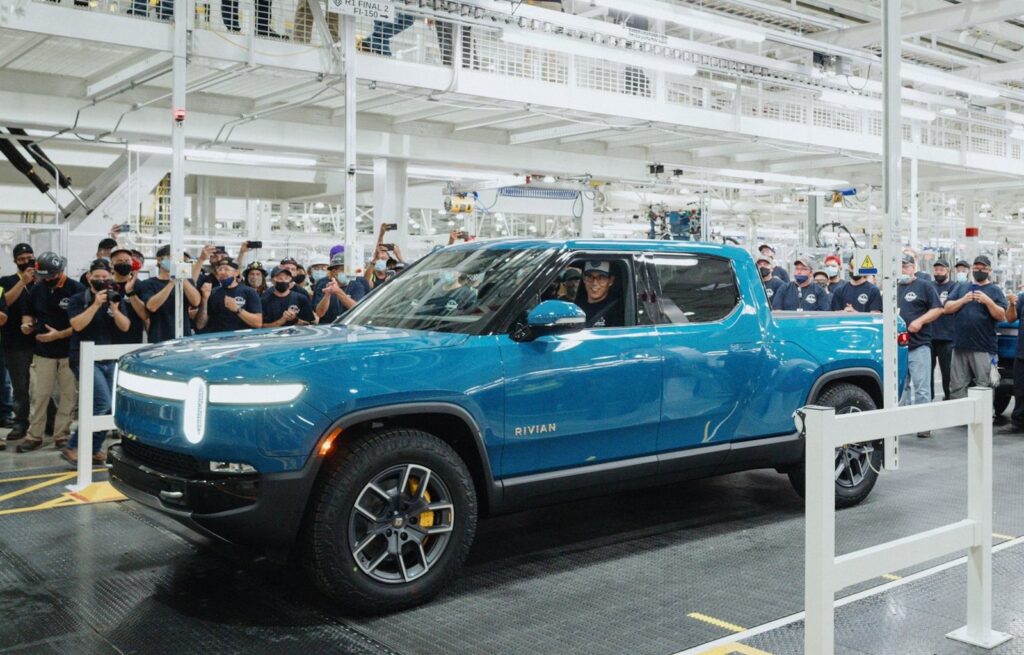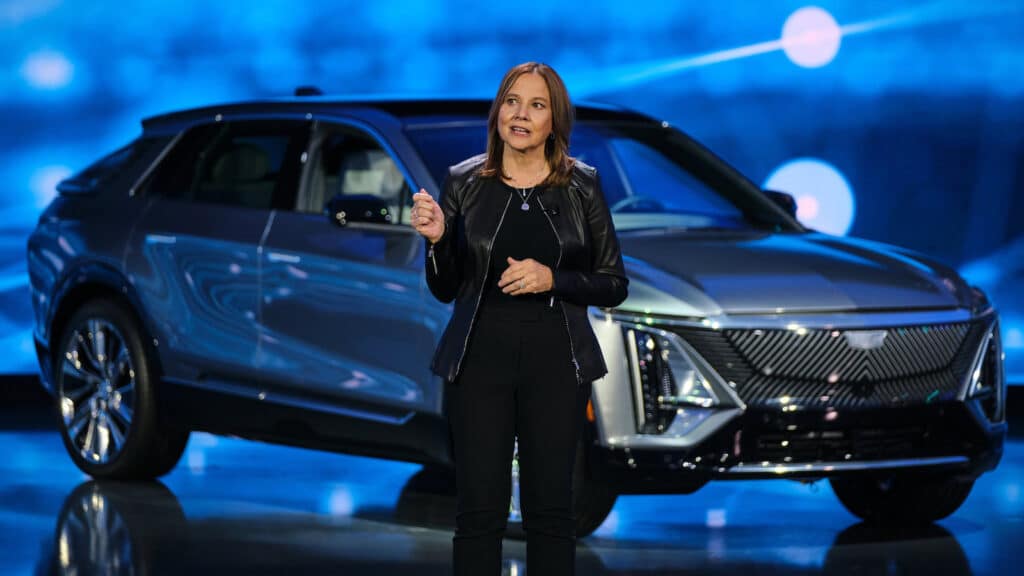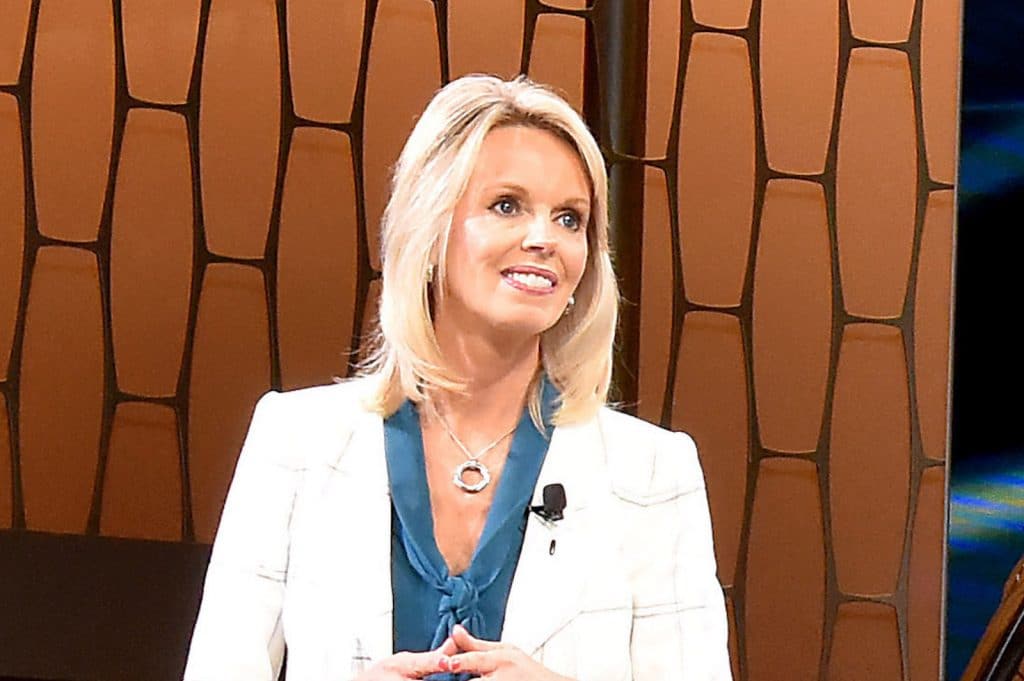The automotive industry’s been a male-dominated arena. Although changes have been implemented during the past two decades, the departure of now former Rivian Vice President Laura Schwab shows “bro culture” hasn’t been eradicated yet.

Schwab, previously the first-ever woman president of Aston Martin North America and a top sales and marketing executive in the industry, suffered through a year of discrimination, condescension and ignorance and was ultimately fired by the boss whom she accused to fostering an exclusionary environment. She wrote about her experience in a lengthy piece published on the website Medium. She’s filed a lawsuit against the company.
“Rivian publicly boasts about its culture, so it was a crushing blow when I joined the company and almost immediately experienced a toxic bro culture that marginalizes women and contributes to the company making mistakes,” she wrote.
“I raised concerns to (human resources) about the gender discriminations from my manager, the “boys club” culture, and the impact it was having on me, my team, and the company. Two days later, my boss fired me.”
What happened?
She outlines that her boss, whom she does not name in the piece, identifying him only as “the Chief Growth Officer (internally called Chief Commercial Officer),” intentionally excluded her — and other women — from meetings, refused to meet with her individually, and essentially ignored work-related communication from her.

According to the Rivian website, Jiten Behl is the Chief Growth Officer. He also identifies Chief Growth Officer as his current role with the nascent EV maker on his LinkedIn page, which says he joined the company in 2016. Rivian officials declined to comment, citing restrictions imposed by its pre-IPO quiet period.
Schwab said the first and only time she had a face-to-face meeting with him was when he called her into his office to fire her, claiming the company was through some changes in leadership.
“I pointed out that there was no coincidence in my firing and my raising concerns of bro culture and gender discrimination just two days earlier,” she wrote. “The very person I had flagged as promoting the discriminatory culture was the person who terminated me.”
She noted it didn’t make sense to shake up the senior leadership team, especially the sales and marketing leader, “just as Rivian was beginning to sell vehicles on the eve of an IPO.”
Industry-wide problem?

It’s not the first time in recent years the term “bro culture” has surfaced in the auto industry. Most recently, former Uber CEO and founder Travis Kalanick was eventually forced to resign in 2017 because problems with sexual harassment and his fostering a boys club style culture in the office.
The company was forced to launch an internal probe – header by former U.S. Attorney General Eric Holder — after a former engineer, Susan Fowler Rigetti, described a culture of sexual intimidation and harassment inside the ride-hailing company.
Among other things, Rigetti was repeatedly propositioned by her former boss, then told she would face retribution for even reporting the behavior of a highly prized manager. Critics accused Kalanick of creating a “baller,” or macho frat house-style, culture at Uber that seemed to not only tolerate but even encourage questionable behavior.
Among the examples of this was a memo that surfaced warning employees attending a company retreat not to toss beer kegs off the hotel’s roof and set guidelines on who could have sexual relations.
Holder and his law firm, Perkins Coie, examined nearly 300 allegations of sexual and other forms of harassment at Uber. Holder’s report, and the recommendations it made, were approved unanimously by the company’s board of directors.
Change is afoot

TheDetroitBureau.com spoke with female employees at three different automotive companies, and all said they felt there was a push to eliminate sexual harassment and gender discrimination, but one noted it still occurred and a problem in some companies.
However, few places were more white male dominated than the auto industry until recently. The Big Three automakers have all fallen under the spotlight at one point or another for these very issues. They’ve also very publicly instituted programs aimed at changing that culture.
General Motors is a prime example of change. The company’s Chairman and CEO is a woman as are seven of the 13 members of the company’s board of directors — the only automaker where women constitute the majority of the board.
Diversity is a focus in the company’s executive ranks as well. Barra’s overseen a significant shift of women into higher level roles at the company during her tenure. Some of those include Dhivya Suryadevara as Chief Financial Officer, the first-ever woman to hold the job, and Alicia Bolder Davis as the Head of Global Manufacturing.
Others include Ann Cathcart Chaplin, corporate secretary and deputy general counsel; Margaret Curry, vice president, Tax and chief tax officer; Julia Steyn, head of urban mobility and Maven; Kimberly Brycz as senior vice president, Global Human Resources; and Pamela Fletcher, vice president, Global Electric Vehicle Programs. Both Boler Davis and Suryadevara left the company for other opportunities in the last two years.

The push to diversify, at least by gender, is beginning to get noticed. GM was the top ranked company in the U.S. on the Gender Equality Global Report & Ranking for 2021. It was No. 5 globally, with a score of 71%, up from No. 11 and a score of 68% last year. GM was the only automaker in the Top 100.
Researchers noted GM achieved gender balance at the board level (at the time the report was issued, there were six women on GM’s board). Additionally, women represent 20% of the executive team, 32.2% of senior management and 21.8% of the workforce.
GM’s top domestic rival, Ford Motor Co., currently has three women on its board of directors and nominated a fourth, Alexandra Ford English, daughter of current Executive Chairman Bill Ford Jr., who is virtually assured of election to the board later this year.
Ford English, until recently, was also Ford Motor Co.’s representative to the Rivian board of directors. Ford Motor owns an equity stake in the EV maker. She held roles in corporate strategy at companies like Tory Burch and Gap Inc. as well as the automaker, which she joined in 2017.
The company’s global workforce is 28% female and 20% of its leadership comprises women. Some of it is top officers include Joy Falotico, president, The Lincoln Motor Co.; Lisa Drake, chief operating officer, North America; Suzy Deering, chief marketing officer; Dianne Craig, president, International Markets Group; Elena Ford, chief customer experience officer; Cathy O’Callaghan, vice president, Controller; and Kiersten Robinson, chief people and employee experiences officer.
Falotico, Drake and Deering have all moved into their roles in the last 12 months with the first two moving from other jobs within the company. Deering arrived at the automaker in January from eBay, where she was global chief marketing officer. She took over for Falotico, who now focuses solely on running Lincoln.







